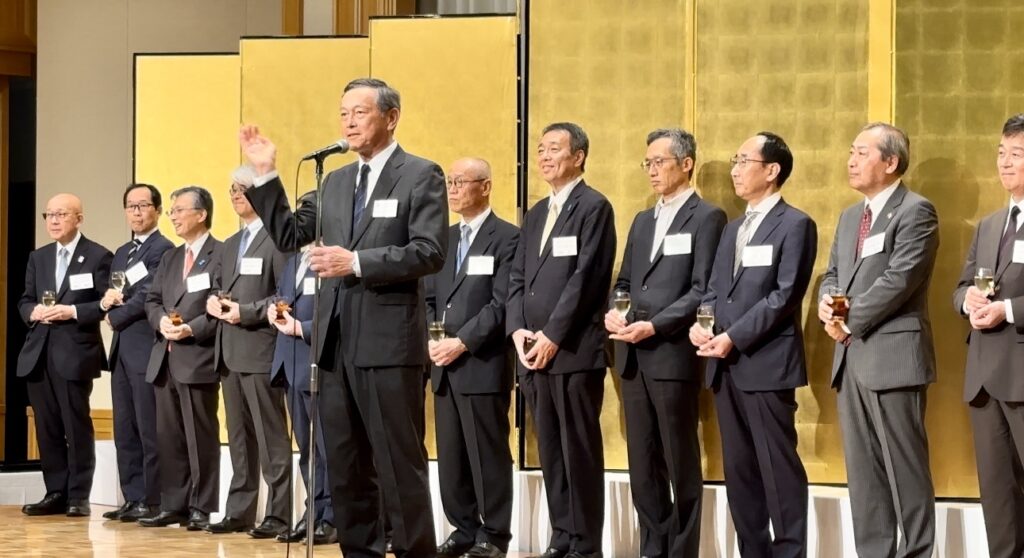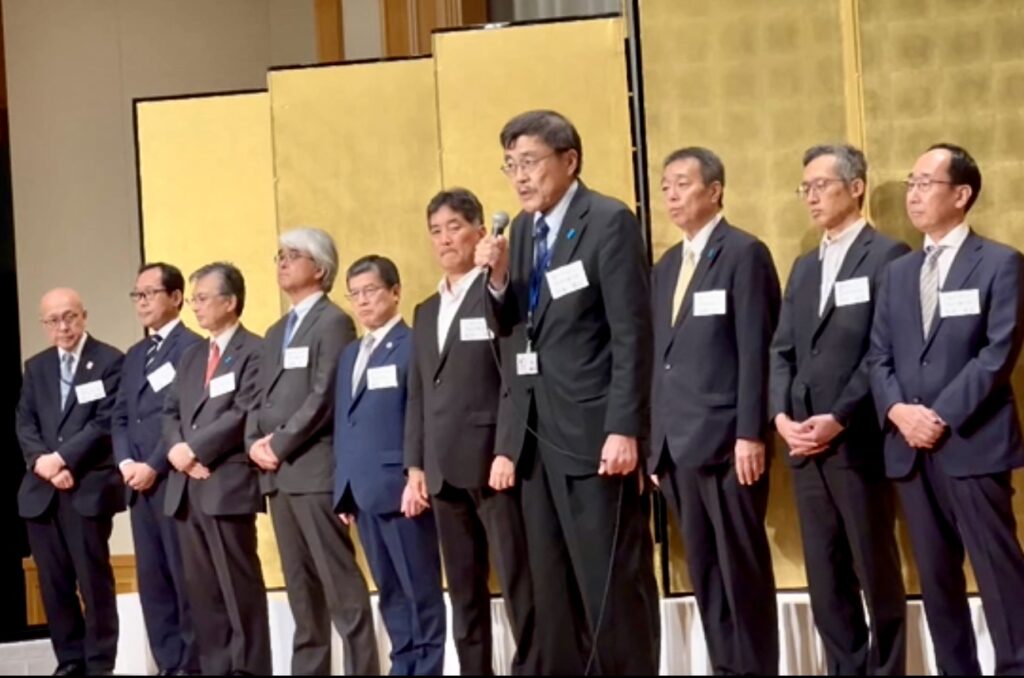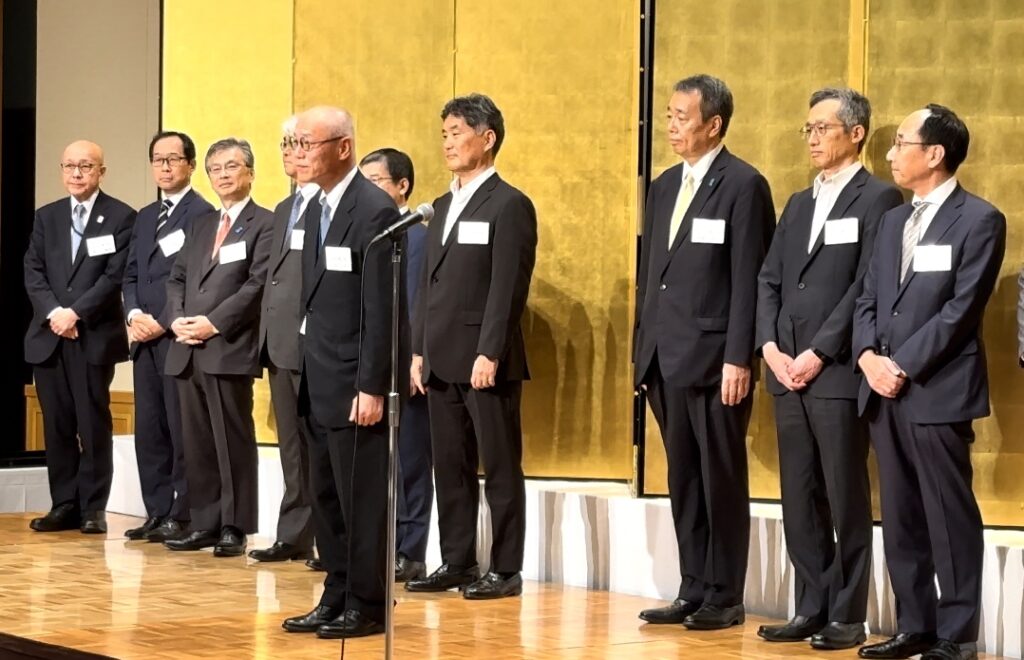





TOKYO: The Middle East Institute held a reception for Japanese ambassadors in the Middle East, with the participation of more than 200 official, political, academia and media personalities.
In his welcoming speech, SASAKI Mikio, Chairman of the Institute, said that the meeting came at a time when “the countries of the region are facing security challenges and adopting new foreign policies with the decline of American influence.”
He pointed out how some countries, such as the United Arab Emirates, had normalized relations with Israel, Qatar’s resumption of diplomatic relations with its neighbors, and Syria’s return to the Arab League. He added that China’s influence in the Middle East is increasing as it mediated the restoration of diplomatic relations between Iran and Saudi Arabia and is actively involved in peace issues in the Middle East.
Sasaki noted “the impact of the Russian invasion of Ukraine on the energy and food sectors in the region, and the quest of some Middle Eastern countries for regional stability and protecting their interests by strengthening relations with Russia.”
However, he said that despite these complex circumstances, Japan has maintained good relations with the countries of the Middle East, mainly thanks to the efforts of the ambassadors andthe Ministry of Foreign Affairs. He also referenced the upcoming visit of Prime Minister KISHIDA Fumio to Saudi Arabia, the United Arab Emirates and Qatar (starting from July 16) after attending the NATO summit in Lithuania.
Since assuming the premiership, this visit will be Kishida’ssecond to the Middle East, after visiting Egypt in April. Kishida also visited many countries in the region when he was foreign minister, with the aim of strengthening relations among the countries there.
Sasaki concluded his speech by saying there are great international expectations that Japan will play an important role in the region, and that the Middle East Institute is involved in a wide range of activities related to that.
MIYAMOTO Masayuki, Ambassador of Japan to Bahrain, spoke on behalf of the 21 participating Japanese ambassadors, starting with a review of Japan-Bahrain diplomatic relations and how the relationship between the two countries goes further back than the 51 years of diplomatic relations. Japan played a crucial role in helping Bahrain export its oil thanks to the help of the Asano Corporation nearly 100 years ago.
Ambassador Miyamoto continued by saying that Japan’s relationship with the countries of the Middle East is not limited to governments, but rather extends to the Arab royal families and the Japanese Imperial family, which are ties of equal importance. Miyamoto moved on to talk about major developments in the Middle East, especially “the establishment of diplomatic relations between Israel and (some) Gulf states and the resumption of diplomatic relations between Iran and Saudi Arabia.”
Miyamoto said that the working and living conditions of embassy staff in the Middle East and employees of Japanese companies there “are still difficult.”
SAEKI Akitaka, President of the Middle East Institute, spoke about the activities of the Middle East Research Institute, which works to provide reference information for all those interested in the relations of Japan and the countries of the region.